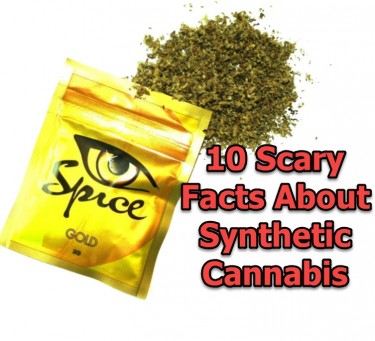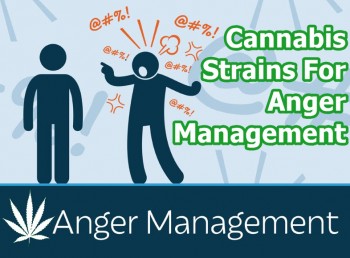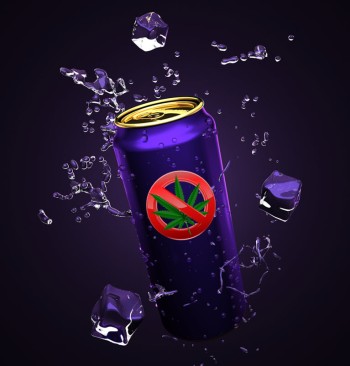Study: Synthetic Cannabinoid Users Experience ‘More Severe’ Withdrawal Symptoms

Spice is a common synthetic cannabis product that has been found to induce several challenges in people who are trying to quit.
Researchers in the University of Bath Addiction and Mental Health Group has studied the withdrawal symptoms observed in patients who are trying to quit using synthetic cannabinoids. The new research found that these individuals go through worse withdrawal symptoms than users of regular pot. The Research findings were disclosed last month and the challenges experienced by these users were highlighted. The study focused on synthetic cannabis users who got hooked on the products classified as 'Spice".
Spice
Spice is a synthetic cannabinoid used in place of organic cannabis. The name 'Spice' is a non-formal term used to classify drugs that are scientifically known as synthetic cannabinoid receptor agonists. Researchers often abbreviate this term as 'SCRAs'.
The drug was developed to imitate the effects of marijuana in the endocannabinoid system (ECS). The cannabinoid compounds were produced artificially and then sprayed on herbal materials which appear like marijuana.
Users can purchase these drugs easily. One of its appeals is that it is undetectable in drug tests. Meaning that it can be used as a substitute to get high without being caught. Most of the individuals that tend to use these products are athletes, prisoners, and even gainfully employed workers in respectable companies. It has also been found to be more powerful than regular cannabis, which is why many get addicted to it in no time.
Since it got released mainstream, scientists have proven these claims by conducting experiments. They discovered that users tend to get hooked to spice in less time than it would take to get hooked to cannabis. More observations have shown that the drug is more harmful than regular marijuana. Users find it extremely difficult to stop using due to the intense and severe symptoms experienced during withdrawal.
Spice Withdrawal
This is usually experienced when a regular spice smoker suddenly stops using the drug. A series of unpleasant symptoms present itself once a drug is no longer used. For some, a tiny reduction in the regular intake of spice could induce these severe symptoms.
Withdrawal symptoms occur when a body system tries to adjust itself to a drug drought after having experienced the drug effects for a very long time. These symptoms can remain for a few days to a few weeks or even months in severe cases.
Most spice users who have attempted quitting found themselves using again when they could not withstand the adverse symptoms. For synthetic cannabinoids like spice, some users tend to get hooked to the drug forever because not everyone can overcome the intense challenges that pop up once the drug use is paused or halted.
The Study
The findings of this study can be found in the Psychopharmacology journal. The objective of the study was to compare the effects of spice and cannabis withdrawal in the volunteers. The researchers involved in the study are the first to compare the intensity of spice effects with that of marijuana. The lead author and Ph.D. Student, Sam Craft, of this study, got his funding from the Medical Research Council.
The experiment was designed to show just how much either drug will cause harm after long-term use. The severity of the withdrawal symptoms was measured, as well as how long it would take for a volunteer's tolerance to build up and withstand the effects of the drug. The duration of the effects was also measured. Each volunteer was questioned about the withdrawal symptoms experienced after they attempted to quit.
This study is by far the largest experiment on spice withdrawal ever conducted globally. It employed a group of cannabis users as well as a sample of individuals who regularly use spice. The total number of volunteers registered into the program also included about 280 individuals who had participated in the Global Drug Survey while trying to quit synthetic cannabinoids.
Observation
The volunteers reported that the induced effects of spice did not last as long as that of cannabis, although it takes a shorter period to get high. In addition to this, the participants noted that they developed tolerance more quickly for synthetic cannabinoids. This translates to higher doses in lesser periods to induce the same feelings observed before the tolerance developed.
About 67% of the participants reported that they experienced more than three severe symptoms when they tried to quit. Some of these symptoms presented as insomnia, depression, irritability, heart palpitations, fever, etc. Although regular cannabis users experience the same symptoms, theirs is not as serious as symptoms experienced by Spice users. The researchers also observed that the participants in the spice sample developed an intense craving for the drug once they attempted to quit.
Mr. Craft explained that spice could very well be termed a 'harmful drug'. The observed effects show that it is not worth being considered as a legal alternative to marijuana. It has extensive deteriorating effects on people who attempt to quit. He added that it would be best if synthetic cannabinoids like spice are prohibited and banned. It shouldn't be used as a substitute for any type of drug, as most people experience a different range of problems after using the drug.
It can be recalled that in 2011, the Drug Enforcement Agency banned several synthetic cannabinoid compounds, however, the makers of spice simply altered a single makeup in its genetic component for the drug to remain legal.
Conclusion
From the observations made from the study, Dr. Tom Freeman, Director of the Addiction and Mental Health Group at the University of Bath inferred that the identified withdrawal symptoms need effective treatments for patients to successfully stop using the drug. There is an urgent need for the government, as well as medical bodies to develop useful treatments that would help solve the clinical. problems presented during spice withdrawal.The University of Bath researchers were recently awarded £1.3 million for their spice research. The researchers say that the money will be used to fund the development of portable devices that would be able to detect spice in users.
SYNTHETIC CANNABIS, READ MORE...
HOW TO TELL REAL CANNABIS FROM SYNTHETIC CANNABIS?
OR..
SYNTHETIC CANNABIS SPICE - WHAT YOU NEED TO KNOW!







